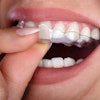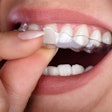
Texas owes the U.S. government $133 million for unallowable orthodontic Medicaid treatments from 2008 to 2010, according to a new report by the Office of Inspector General (OIG). Many of the claims were improperly approved because they did not have required documentation or lacked the necessary scores to qualify for orthodontic services.
However, the state says it will repay the federal government when it recovers the money from Xerox, the owner of Texas Medicaid & Healthcare Partnership (TMHP) which was awarded a contract by the state to handle orthodontic Medicaid claims.
"[The Texas Health and Human Services Commission] will use funds recovered through the attorney general's lawsuit to refund the federal share of all improper Medicaid payments that were made as a result of Xerox's conduct," the agency wrote in an email to DrBicuspid.com.
Xerox responded that the Texas Health and Human Services Commission (HHSC) got regular reports about the approved claims.
"At all times, the state of Texas, through the Health and Human Services Commission, knew and approved of the prior authorization process that TMHP administered and received monthly reports on the authorized treatments," Xerox spokesman Kevin Lightfoot wrote in an email to DrBicuspid.com. "Throughout the length of the orthodontic Medicaid contract from 2004 through 2014, Xerox always performed its work in good faith and with transparency."
Unallowable orthodontic services
“Texas did not ensure that requests for prior authorization of Medicaid orthodontic services were approved in accordance with state Medicaid guidelines.”
Many of the claims were improperly approved because they did not have required documentation or lacked the necessary scores to qualify for orthodontic services.
The June 4 report by the OIG, titled "Texas Paid Millions for Unallowable Medicaid Orthodontic Services," stated that Texas paid at least $191.4 million, including $133.4 million paid by the federal government, for "unallowable orthodontic services" during a 33-month period from September 1, 2008, through May 28, 2011.
"Texas did not ensure that requests for prior authorization of Medicaid orthodontic services were approved in accordance with state Medicaid guidelines," according to the report.
Texas Medicaid payments for orthodontic services rose from $6.5 million in 2003 to $220.5 million in 2010, an increase of more than 3,000%, the report noted. By comparison, Texas Medicaid enrollment increased by only 33% during the same period.
 Chart courtesy of the U.S. Department of Health and Human Services Office of Inspector General.
Chart courtesy of the U.S. Department of Health and Human Services Office of Inspector General."Because payments for Medicaid orthodontic services in Texas have risen sharply in recent years, we have identified this area as vulnerable to fraud, waste, and abuse," the report stated.
The review covered 149,164 requests for prior authorization of Medicaid orthodontic services, for which Texas paid more than $236 million. Of these, the OIG analyzed a random sample of 106 claims.
The findings included the following:
- Of 106 sampled requests, 89 did not comply with state Medicaid guidelines.
- Of the 89 improperly approved requests, 78 did not qualify for orthodontic services and 11 lacked required documentation.
Although Texas had contracted with TMHP to handle orthodontic Medicaid claims, the OIG report noted that the Texas Health and Human Services Commission (HHSC) is ultimately responsible for complying with Medicaid guidelines.
Orthodontic Medicaid requests should have included orthodontic treatment plans, x-rays, facial photographs, and a handicapping labio-lingual deviation (HLD) score of at least 26 points, the report noted.
An August 2014 federal report laid the responsibility for hundreds of millions of dollars spent on dental and orthodontic procedures that may have been medically unnecessary squarely on the HHSC.
In May 2014, the Texas HHSC terminated its contract with Xerox, which owns TMHP, and sued the company, claiming that Xerox staff approved thousands of requests for orthodontic procedures that were not medically necessary. The Texas attorney general also filed a suit to recover millions of dollars for the work.
Eight dentists then filed suits claiming the state and attorney general "protected" Xerox because they feared a federal clawback for hundreds of millions of dollars in fraudulent orthodontic claims. The suits claim that state regulators gave Xerox a pass because acknowledging the company's improper handling of claims would call into question why Texas repeatedly renewed Xerox's contract.
HHSC director resigns
On June 5, the day the report came out, the HHSC announced that Director Kyle Janek, MD, will step down. Janek stated it was his idea to resign, noting that the issues with the TMHP contract predate his directorship, according to a Texas Tribune article.
In an email to DrBicuspid.com, HHSC said improvements in these dental services had begun before this audit.
"Prior to this audit, HHSC began turning a corner, making improvements to Medicaid dental services for young adults and children, primarily through transition to a managed care delivery method," the HHSC wrote in an email to DrBicuspid.com. "Texas has seen dramatic cost savings and significant improvements to the quality of dental care for children with Medicaid since Texas moved those services to a managed care model three years ago. Since beginning managed care in March 2012, HHSC has saved more than $1 billion on dental costs, through changes in prior authorization policies and cost containment."
Al Anthony of the Texas Dentists for Medicaid Reform organization, emailed this response to DrBicuspid.com:
“The federal report puts to rest the allegations of wide-spread "fraud, waste, and abuse" by Texas orthodontic providers and puts the responsibility for the elevation in Texas Medicaid orthodontic spending from 2008 to 2010 rightly where it belongs -- the state agency and its contractor which the state is now suing," Anthony wrote.


















